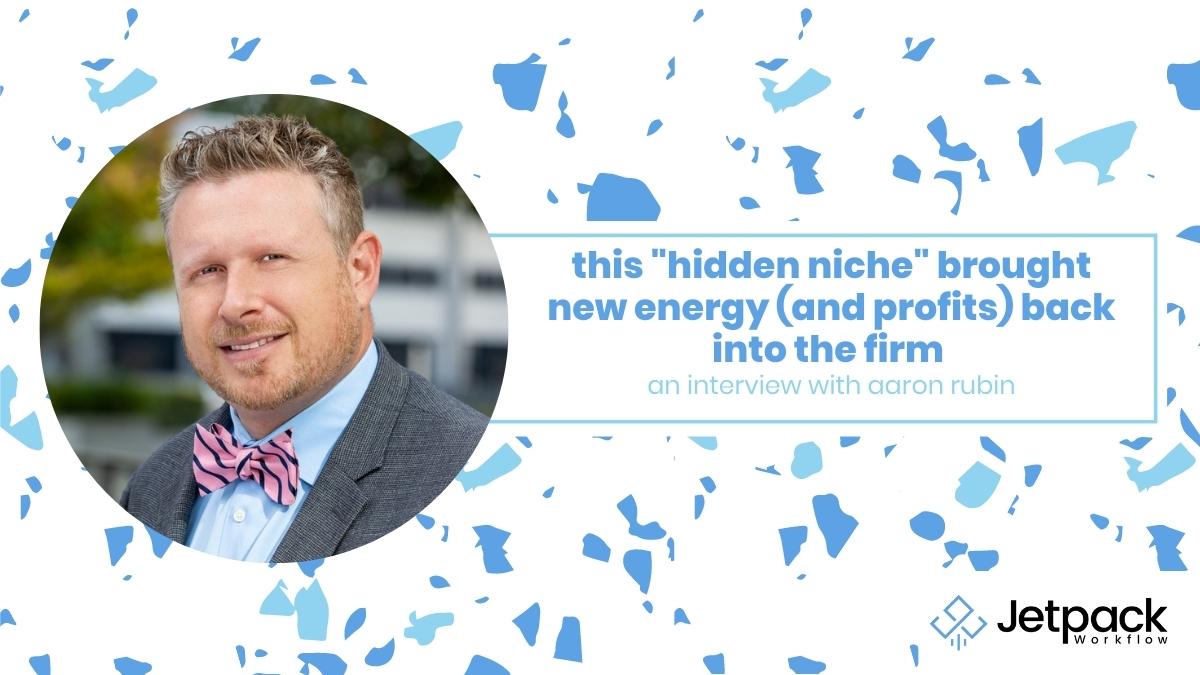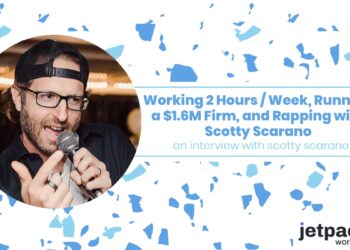This “Hidden Niche” Brought New Energy (And Profits) Back into the Firm

Podcast
Summary
- Who does Werba Rubin Papier serve?
- Strategic Relationships
- Merging A Wealth Management and Tax Practice
- Firm Acquisition Going Forward
- Navigating the Great Resignation
Additional Resources
- https://www.wrpwealth.com/
- WRP Facebook
- Aaron’s LinkedIn
- WRP’s LinkedIn
- Aaron’s email: arubin@wrpwealth.com
Meet Aaron Rubin
Aaron Rubin specializes in financial, estate, and tax planning. With an extensive background in financial services, Aaron takes particular pride in helping his young tech clients make tax-savvy, financially sound decisions about their stock compensation packages. He received a BA in Economics-Accounting-Spanish from Claremont McKenna College. He graduated cum laude from the University of Illinois College of Law and was admitted as a member of the California Bar in 2006. He is licensed as a certified public accountant. In 2009, Aaron also received his CFP® designation.
Aaron started his career in accounting, working at international CPA firm Deloitte, where he focused on high net worth individual income tax returns. He then moved to Abbott Stringham & Lynch — a local CPA firm — expanding his focus to estate and gift tax returns and planning. He has been with WRP since 2009.
Who does Werba Rubin Papier Wealth serve?
“We help pre-IPO executives, not necessarily C-Suite but executives,” Aaron said. His company helps them manage their stock option compensation, which means focusing on wealth, financial planning, and tax implications. Most of their clients come to them during their D or E round of funding with some kind of problem, usually tax-related. Aaron’s company helps those executives solve those tax problems and plans for how they will address those problems in the future.
Before Zoom went public, Aaron describes his business as a standard wealth practice. However, he struggled with that line of work. The shift in his work came after Zoom went public. They had an influx of clients from Zoom who all had tax-related wealth questions which Aaron’s company had answers to. It was during the process of answering these questions that Aaron realized that this is what they should be focusing on.
Strategic Relationships
Aaron mentioned that shortly after Zoom went public his firm had an influx of clients from Zoom itself. How did this come about? Aaron said it was due to a strategic relationship the company had. “We had a strategic relationship with an attorney,” Aaron explained. “What she does is negotiate stock compensation packages for executives who are switching firms.”
Due to the good relationship the company had with this attorney, she began sending them clients from Zoom, and as they built rapport with those clients, more came.
Get everything you need to manage projects and meet deadlines.
Subscribe to our weekly newsletter, and get 32 free accounting workflow templates today!
sign me up!
Aaron knew WRP’s tax director from a prior job experience. They worked together for several years running separate tax and wealth practices, and Aaron’s clients always commented to him how much they liked her. When they needed to ramp up their tax practice again, Aaron immediately thought of Quynh. She agreed to a merger, so now the business is set up such that half of the business is owned by WRP Wealth and the other half is owned by one of Quynh’s entities.
The management of the merged firm remained largely unchanged. They are separate but related entities. The wealth side of the business has seven members, and the tax side of the business has approximately 6. Despite being separate entities, both are housed in the same building. Quynh maintains oversight of the tax revenue generation while WRP maintains the wealth management side. This partnership enables them to conduct referrals nearly in-house for clients that aren’t the best fit for one business.
Firm Acquisition Going Forward
Aaron mentioned that WRP recently acquired another firm. They picked up another local firm that specializes in pre-IPO. While they would like to be able to expand into other areas, they prefer to keep quality at the forefront. “We found a local CPA who is retiring, and they had a practice primarily with individuals with a lot of stock options,” Aaron explained. They found her through a broker, made an offer, and then started doing the work of transitioning those clients into the new processes.
That said, WRP isn’t actively looking for firms to acquire and expand its reach. Their first priority is to ensure that the new employees feel comfortable with their processes.
Navigating the Great Resignation
The Great Resignation has made attracting and retaining talent increasingly difficult. “We’re cognizant of the Great Resignation, and it’s something that we talk about,” Aaron commented. “Let’s make sure we’re keeping these people happy because everyone is looking for a tax senior right now.” WRP has been attracting young professionals just starting their careers and training them up to be experts in their field. Their approach to retaining these new employees, as well as their existing ones, is by doing right by their people and giving them a shot at advancing the way they want to.
WRP also looks for people who are eager to start a second career. “Maybe someone was in tech for a little bit, maybe they were in real estate, and they want to switch gears to do tax work,” Aaron said. “We’ll train them on that. If they were successful in some other enterprise and are looking to shift it up a little bit… those people work out great.” Aaron commented that he bought a book from a very successful IBMer who worked as an IMBer until he was in his fifties and then decided to switch it up. “There are a lot of really smart people out there that, maybe they don’t have a lot of experience but they can learn pretty quick.”
One of the ways WRP retains its people is through mentorship. Their employees feel like they can increase their skill set at WRP. Additionally, WRP constantly analyzes whether or not their compensation is competitive enough.
Part of the Great Resignation deals with work modality. WRP had been sub-leasing space from one of their vendors, and by January 2021 they had been away from the office for a whole year with no indication of actually returning to the office. They put a pause on their lease, but while their sub-lease was on pause, the vendor decided to let their own lease go, so WRP is in a remote work situation due to that circumstance.
Conclusion
We covered a ton of great information in the podcast. If you’re after more detailed information, be sure to check out the full episode! If you’re interested in learning more about niching down, you can connect with Aaron on WRP’s website, LinkedIn, Twitter, Facebook, or via email at arubin@wrpwealth.com.





